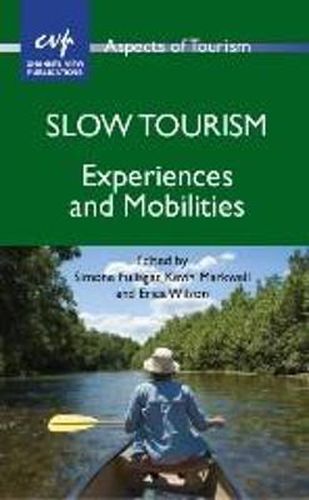Readings Newsletter
Become a Readings Member to make your shopping experience even easier.
Sign in or sign up for free!
You’re not far away from qualifying for FREE standard shipping within Australia
You’ve qualified for FREE standard shipping within Australia
The cart is loading…






Bringing together scholars from the areas of tourism, leisure and cultural studies, eco-humanities and tourism management, this book examines the emerging phenomenon of slow tourism. The book explores the range of travel experiences that are part of growing consumer concerns with quality leisure time, environmental and cultural sustainability, as well as the embodied experience of place. Slow tourism encapsulates a range of lifestyle practices, mobilities and ethics that are connected to social movements such as slow food and cities, as well as specialist sectors such as ecotourism and voluntourism. The slow experience of temporality can evoke and incite different ways of being and moving, as well as different logics of desire that value travel experiences as forms of knowledge. Slow travel practices reflect a range of ethical-political positions that have yet to be critically explored in the academic literature despite the growth of industry discourse.
$9.00 standard shipping within Australia
FREE standard shipping within Australia for orders over $100.00
Express & International shipping calculated at checkout
Bringing together scholars from the areas of tourism, leisure and cultural studies, eco-humanities and tourism management, this book examines the emerging phenomenon of slow tourism. The book explores the range of travel experiences that are part of growing consumer concerns with quality leisure time, environmental and cultural sustainability, as well as the embodied experience of place. Slow tourism encapsulates a range of lifestyle practices, mobilities and ethics that are connected to social movements such as slow food and cities, as well as specialist sectors such as ecotourism and voluntourism. The slow experience of temporality can evoke and incite different ways of being and moving, as well as different logics of desire that value travel experiences as forms of knowledge. Slow travel practices reflect a range of ethical-political positions that have yet to be critically explored in the academic literature despite the growth of industry discourse.